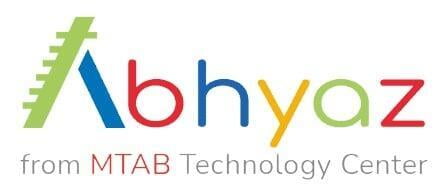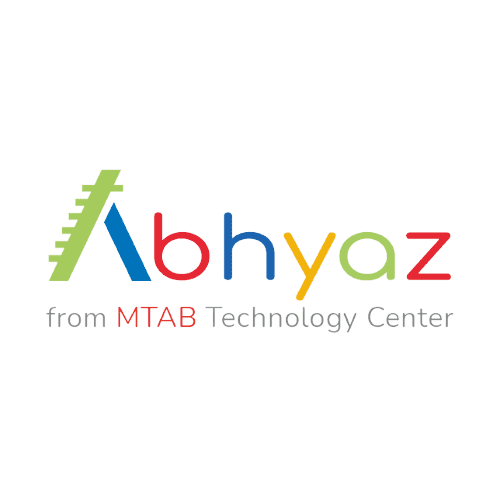Introduction:
Original Equipment Manufacturers (OEMs) are under pressure to adapt and succeed in today's quick-shifting tech ecosystem. As old manufacturing processes are outdated in favor of advanced robotics, artificial intelligence, and data analytics, the demand for a professional workforce with digital skills has increased. To achieve this, OEMs are turning to digital skill hubs to extend their labor and sustain in the market. In this blog, we will look at such digital skill centers in detail.
The Transition to Digital Transformation:
The Transition to Digital Transformation:
The manufacturing industry has been affected by digital transformation, and OEMs are at the forefront of this. To fully achieve the potential of emerging technologies, OEMs require a workforce capable of navigating the digital landscape, leveraging data-driven insights, and adapting to changing customer demands. Attending to this requirement, OEMs are investing aggressively in upskilling and reskilling efforts, with digital skill hubs playing a key part in this process. OEMs have been digitizing their internal operations to increase productivity, and cut costs. Using digital tools and technology like enterprise resource planning (ERP) systems, computer-aided design (CAD) software, and product lifecycle management (PLM) systems, this is achieved. These technologies improve communication, data management, and manufacturing process optimization.
What exactly are Digital Skill Hubs?
What exactly are Digital Skill Hubs?
Digital skill hubs are platforms that provide a wide range of digital training programs and resources to individuals to provide them with the skills required to prosper in the digital economy. These hubs work with educational institutions, industry experts, and technology partners to provide training in areas like data analytics, cybersecurity, automation, and artificial intelligence. Within organizations such as OEMs, digital hubs function as platforms that enable smooth collaboration, communication, and information sharing. Digital hubs enable individuals and teams to collaborate more efficiently by centralizing access to resources, providing collaboration tools, facilitating project management, providing communication channels, and analytics capabilities. This leads to increased productivity, innovation, and overall success. Digital skill hubs enable OEM personnel to improve their digital competencies and foster innovation inside their organizations by delivering accessible and personalized training programs.
OEM Advantages of Digital Skill Hubs:
OEM Advantages of Digital Skill Hubs:
Increased Workforce Agility:
Increased Workforce Agility:
Digital skill hubs provide OEM personnel with the resources needed to adapt to technological advancements and market trends. OEMs may remain agile and responsive to shifting market dynamics by cultivating a culture of continuous learning. They also provide platforms to develop digital skills such as data analytics, artificial intelligence (AI), machine learning, and automation. These can assist in ensuring that the personnel has the necessary abilities to keep up with the latest technologies and business trends.
Increased Innovation and Efficiency:
Increased Innovation and Efficiency:
A staff with digital skills adds new perspectives and ideas to the manufacturing process. Employees can find possibilities for automation, optimize operations, and promote innovation across the value chain by leveraging their newfound experience.
Increased Flexibility and Adaptability:
Increased Flexibility and Adaptability:
Digital skill hubs enable OEMs to establish a flexible workforce capable of adapting to changing business needs. Organizations may establish a diverse workforce capable of handling different roles and responsibilities by upskilling individuals with digital resources. These allow OEMs to immediately allocate resources and alter their workforce in response to change in consumer needs, technical breakthroughs, or market change, ensuring their coordination and responsiveness.
Project Management and Tracking:
Project Management and Tracking:
To facilitate collaboration on complex OEM projects, digital hubs frequently include project management tools. Teams can use these tools to create and assign tasks, set deadlines, and track progress. Project managers can keep track of the status of activities, detect bottlenecks, and properly allocate resources. Such features improve team member coordination, ensuring everyone is on the same page with project goals and schedules.
Problem-Solving:
Digital skill hubs promote an innovative and problem-solving culture within OEMs. Organizations may foster innovation and empower workers to discover ideas, drive continuous development, and adapt to technological advancements by providing staff with digital skills. The ability to innovate rapidly and efficiently is a critical component of workforce agility, helping OEMs to stay ahead of competitors and produce market-leading goods and services.
Document Management:
Document Management:
Document management systems or cloud storage solutions are frequently included in digital hubs, allowing users to store, manage, and share files and documents. These solutions ensure that authorized users have access to the most recent versions of documents, lowering the risk of accessing old or erroneous information. To improve efficiency of the organization, document management capabilities may also include version control, access rights, and search functionality.
Talent Retention and Attraction:
Talent Retention and Attraction:
It is critical to provide possible outcomes for professional growth and development to attract and retain top personnel. Digital skill hubs reflect an interest in staff development, making OEMs more appealing to job seekers and lowering attrition rates.
Collaboration and Networking:
Collaboration and Networking:
Digital skill hubs enable employees to connect, cooperate, and share expertise with peers from various organizations and industries. This exchange of ideas promotes a collaborative ecosystem that stimulates innovation and best practices cross-pollination.
Examples of Successful Digital Skill Hubs:
A hands-on engineering platform that gives users access to 60+ engineering software applications across 15+ technologies. Students, professionals, and corporations can utilize Abhyaz to learn new skills, improve existing ones, and remain updated on the latest technology. Chat rooms, forums, and project management tools are among the features available on Abhyaz that facilitate cooperation and knowledge exchange. It helps organizations organize and manage training and internship programs where individuals participate. It also provides boot camps and internships for students and job seekers. It comes up with notable solutions such as Train 4.0: It helps in giving training by checking the availability of trainers, solving queries using chatbots, etc. Intern 4.0: For building a remote workforce. Zoho Implementations: As a Zoho authorized partner, it provides customized Zoho CRM+ & Analytics setup for organizations of all sizes. It also offers Zoho tools like Desk, Campaign, Salesiq, and Social.
CNCTrain:
CNCTrain:
A skill delivery platform that assists OEMs and skill colleges in digitizing their training operations. CNCTrain is a cloud-based platform for creating, managing, and delivering training courses. CNCTrain also includes evaluation and certification capabilities like online tests and skill assessments. They have national customers like Mitsubishi Electric and Delphi TVS.
MTAB Technologies Centre:
An Advanced Manufacturing / Industry 4.0 training and development firm. The MTAB Technologies Centre has a team of professional engineers and educators who can assist us in developing the skills necessary to succeed in the manufacturing industry. Online courses, instructor-led training, and on-site training are all available through MTAB Technologies Centre.
Conclusion:
OEMs must train their employees with digital skills to remain competitive in an era defined by digital transformation. Digital skill hubs enhance OEM talent development, develop an innovative culture, and increase operational efficiency. OEMs may embrace the future of manufacturing, open new opportunities, and position themselves as industry leaders by embracing these hubs. OEMs can establish a talent pool that fulfills today's standards and thrives in the digital landscape by collaborating, investing, and committing to lifelong learning.
FAQ:
Are digital skill hubs feasible?
Are digital skill hubs feasible?
Yes, digital skill hubs are practical and have gained considerable traction in recent years. Digital skill centers, known as tech hubs or innovation hubs, are physical or virtual locations where people may get resources, training, and support to improve their digital skills. As the world gets more digitized, there is a greater demand for those with digital abilities. Digital skill hubs offer a controlled setting in which individuals may learn these abilities and remain relevant in today's work market.
Why OEM employees, in particular, should train in digital skill hubs?
Why OEM employees, in particular, should train in digital skill hubs?
The technological landscape is evolving, and digital transformation has become critical for many OEMs. OEM staff can stay updated on the newest innovations and learn the essential skills to efficiently adapt to changing technologies through training in digital skill centers.
Why digital transformation has become a sudden demand?
Why digital transformation has become a sudden demand?
Customers today have higher expectations for convenience, personalization, and omnichannel experiences. They expect digital interactions, online services, and mobile product and service access. Businesses must change their operations and communicate with customers through digital platforms to meet these demands and remain relevant. The COVID-19 epidemic underscored the significance of digital transformation. Lockdowns, social distancing measures, and distant work requirements prompted enterprises to embrace digital solutions swiftly to continue operations. Businesses must deploy digital communication channels, e-commerce platforms, and remote technologies for collaboration to withstand and thrive.
Are digital skill hubs reliable?
Are digital skill hubs reliable?
Digital Skill hubs can be trustworthy sources of knowledge and training for digital skills, but it all comes down to the specific hub and the resources it offers. Examine the talent hub's reputation and look for user evaluations, testimonials, or endorsements from credible organizations. Verify the hub's affiliation with credible companies or subject matter experts.

